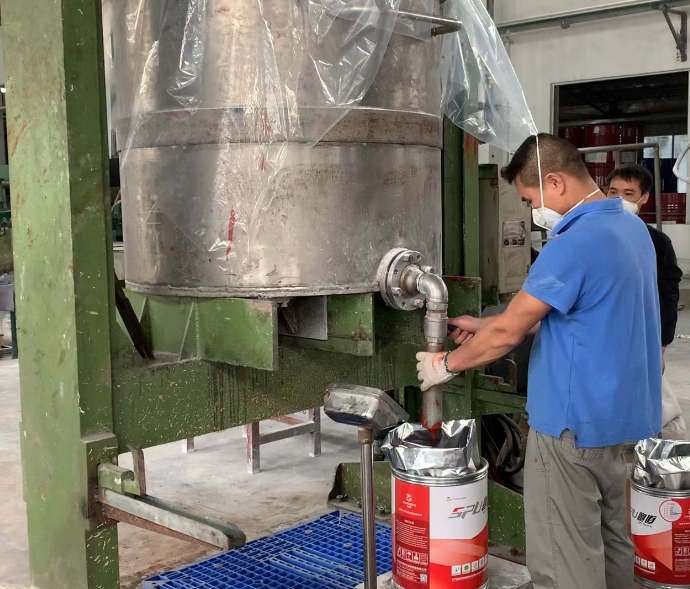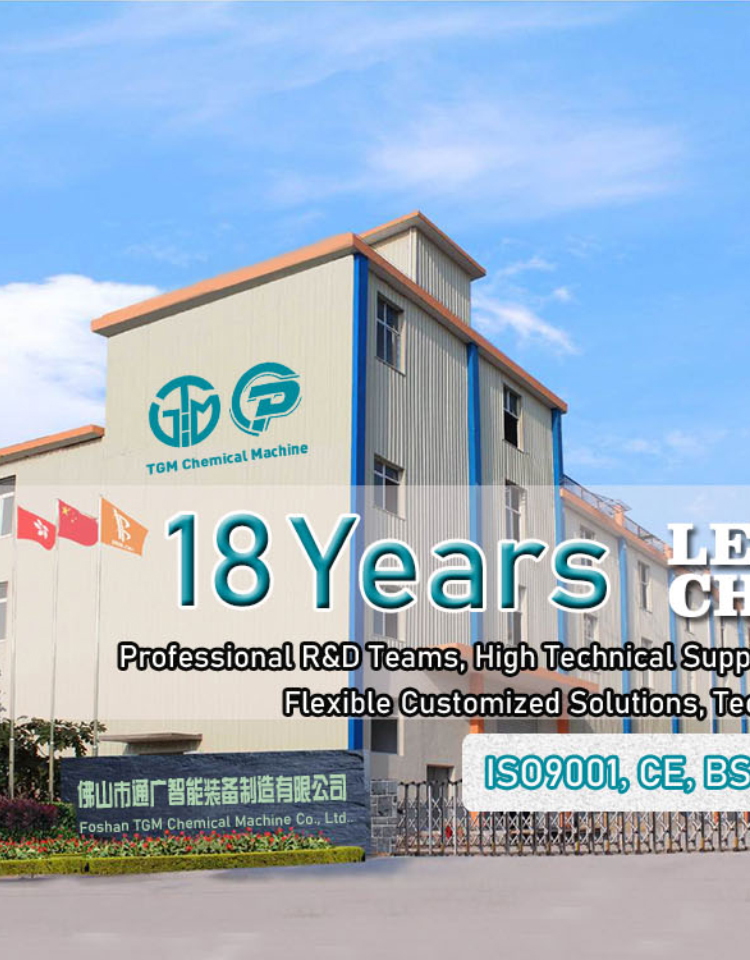Email cannot be empty
Password cannot be empty
Email format error
Email cannot be empty
Email already exists
6-20 characters(letters plus numbers only)
The password is inconsistent
Email format error
Email cannot be empty
Email does not exist
6-20 characters(letters plus numbers only)
The password is inconsistent


High Viscosity Pressure Machine: Essential Guide for Industrial Applications
In the world of industrial manufacturing, precision, efficiency, and consistency are critical for success. One piece of machinery that has become indispensable in many industries is the high viscosity pressure machine. These machines are essential for handling and processing materials that have a high viscosity, such as adhesives, paints, greases, and certain food products. This blog post will provide an in-depth look at the high viscosity pressure machine, its applications, benefits, and the reasons why industries rely on it. Whether you're looking to purchase one or want to better understand its operation, this guide will be your ultimate resource.
What is a High Viscosity Pressure Machine?
A high viscosity pressure machine is a specialized piece of industrial equipment designed to process materials with a high degree of viscosity. Viscosity refers to the thickness or resistance to flow that a material exhibits. High viscosity substances are more challenging to pump, mix, or dispense, which is where the pressure machine comes into play. These machines exert force on the material, enabling smooth flow, precision application, or proper mixing without compromising the material's quality.
Key Components of a High Viscosity Pressure Machine
The structure includes several crucial components that ensure its efficiency and durability:
- Pump System: The pump is designed to handle thick substances that are otherwise difficult to move through standard pumping systems.
- Pressure Regulators: These help control the force applied to the viscous material, allowing for precise adjustments based on the specific needs of the operation.
- Mixing Chamber: Some pressure machines include mixing capabilities, ensuring that all components of the material are thoroughly blended.
- Nozzle or Dispenser: Depending on the machine's application, this component ensures the precise application or delivery of the processed material.
How Does a High Viscosity Pressure Machine Work?
The pressure machine works by applying significant pressure to thick materials, forcing them to move or be applied in a controlled manner. Depending on the machine's design, the substance may be pumped from a storage container, mixed with other components, and then dispensed through a nozzle.
For instance, in the adhesive industry, the pressure machine is used to ensure that the adhesive flows smoothly and is applied evenly to surfaces without clogging the dispensing system. By applying consistent pressure, the machine guarantees that even the thickest substances can be utilized efficiently without manual intervention.
Industrial Applications of High Viscosity Pressure Machines
High viscosity pressure machines are used across multiple industries, where the handling of thick or semi-solid materials is a common requirement. Below are some of the most prominent applications:
1. Adhesive and Sealant Industry
One of the most common uses is in the adhesive and sealant industries. Many adhesives are extremely thick, and without the right equipment, their application can be uneven or inconsistent. These machines ensure that adhesives are dispensed smoothly and with precision, preventing material waste and improving production efficiency.
2. Food Processing Industry
In the food industry, certain ingredients such as pastes, creams, and syrups can have high viscosity. A pressure machine ensures these products are mixed, pumped, or dispensed efficiently, maintaining the consistency of the end product. For example, machines used in the production of peanut butter or chocolate spreads rely on pressure machines to handle the thickness of the materials.
3. Paints and Coatings
Paints, coatings, and varnishes, especially those used for industrial purposes, often have a high viscosity. A pressure machine is crucial in ensuring that these materials are evenly applied to surfaces without clumping or dripping. This precision is essential for achieving uniformity in coatings, which is vital in automotive, aerospace, and construction applications.
4. Pharmaceuticals
In the pharmaceutical industry, certain creams, gels, and ointments have high viscosity and require specialized equipment for processing. A pressure machine ensures that these substances are mixed correctly and dispensed into packaging efficiently without compromising the product's integrity.
5. Cosmetics Industry
Cosmetic products such as lotions, creams, and makeup often have a high viscosity. The precise application of these products in packaging and ensuring the consistency of the final product is made possible by high viscosity pressure machines.
Benefits of Using a High Viscosity Pressure Machine
Investing in a high viscosity pressure machine offers several advantages to manufacturers and industries working with thick materials. These benefits include:
1. Improved Efficiency
Handling high-viscosity materials manually or with improper equipment can lead to bottlenecks in the production process. A pressure machine streamlines the handling and application of these materials, improving overall operational efficiency.
2. Consistency and Precision
Maintaining consistency in product quality is essential in any industry. By using a high viscosity pressure machine, manufacturers can ensure that each batch of material is processed and dispensed with the same precision, resulting in a uniform end product.
3. Reduced Waste
When working with thick materials, improper handling can result in significant material waste due to clumping or uneven dispensing. The pressure machine minimizes this risk by ensuring smooth, even application, reducing the amount of wasted material.
4. Versatility
The pressure machines are adaptable and can be used across a wide range of industries. Whether you are in the food, cosmetic, or adhesive industry,the pressure machine can be customized to meet your specific requirements.
5. Increased Productivity
Since these machines automate the handling and dispensing of high-viscosity materials, they reduce the need for manual intervention, thereby increasing overall productivity. Employees can focus on other tasks while the machine handles the complex process of working with thick materials.
Choosing the Right High Viscosity Pressure Machine
When it comes to selecting the pressure machine for your business, several factors must be considered to ensure you get the best possible solution for your needs:
1. Viscosity of Material
Not all high viscosity pressure machines are designed to handle the same degree of thickness. It's crucial to select a machine that matches the viscosity of the material you'll be processing. Some machines are designed for moderately thick substances, while others can handle extremely viscous materials.
2. Capacity and Output
The size and output capacity of the machine should align with your production needs. Larger operations will require machines with higher output capacities to keep up with demand.
3. Customization Options
Depending on the material you're working with, you may need a high viscosity pressure machine that offers customization options such as adjustable pressure settings, different nozzle sizes, or integrated mixing capabilities.
4. Durability and Maintenance
Given the demanding nature of handling high-viscosity materials, your chosen machine should be built to withstand heavy use. Look for machines made from durable materials, and ensure that regular maintenance can be performed easily.
The Future of High Viscosity Pressure Machines
With advancements in technology, the pressure machines are becoming more sophisticated and easier to integrate into automated production lines. Future innovations are expected to improve their precision, reduce energy consumption, and allow for even more customization based on industry-specific needs. Additionally, as industries move towards more sustainable practices, manufacturers are developing machines that can work with eco-friendly materials and produce less waste.
Conclusion
The high viscosity pressure machine is an essential tool for industries working with thick materials. From adhesives to cosmetics, these machines ensure efficiency, precision, and consistency in handling high-viscosity substances. By investing in the right machine, businesses can improve their productivity, reduce waste, and maintain the quality of their products. With continued advancements in this technology, the future looks bright for industries that rely on these powerful machines to streamline their operations.
If you're considering adding a high viscosity pressure machine to your production line, be sure to evaluate the specific needs of your operation, and choose a machine that offers the right balance of capacity, customization, and durability. This investment will likely pay off in improved efficiency and product quality over time.

